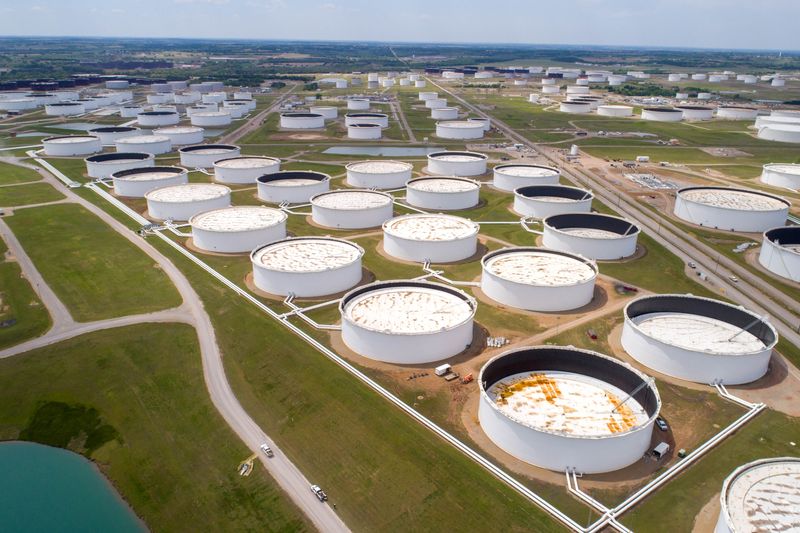[ad_1]

© Reuters. Crude oil storage tanks are seen in an aerial {photograph} on the Cushing oil hub in Cushing, Oklahoma, U.S. April 21, 2020. REUTERS/Drone Base
By Robert Harvey
LONDON (Reuters) -Oil costs fell by greater than $1 a barrel on Thursday after Angola introduced it’s leaving the Group of the Petroleum Exporting Nations (OPEC).
futures have been down $1.30, or 1.63%, to $78.40 a barrel by 1419 GMT, whereas U.S. West Texas Intermediate crude was decrease by $1.19, or 1.60%, at $73.03.
Angola’s oil minister Diamantino Azevedo mentioned the nation’s membership in OPEC was not serving its pursuits.
At a gathering in November, Angola had protested a choice by OPEC to chop its manufacturing quota for 2024. Angola’s oil manufacturing is round 1.1 million barrels per day (bpd).
“From an oil market provide perspective, the impression is minimal as oil manufacturing in Angola was on a downward development and better manufacturing would first require larger investments,” mentioned Giovanni Staunovo, an analyst at UBS.
“Nevertheless, costs nonetheless fell on concern of the unity of OPEC+ as a bunch,” he added, referring to the producer alliance that features Russia.
Oil costs had been comparatively steady from yesterday’s ranges previous to the information out of Angola, with Brent buying and selling close to $80 a barrel, as traders balanced larger inventories and report output in the US with jitters over world commerce disruptions within the Purple Sea.
“With such a heavy load of US crude reported in elevated measure, one can solely assume that the market stays edgy in regard to produce diversion and even hiatus attributable to the Houthi assaults on transport,” PVM analyst John Evans mentioned.
The U.S. Vitality Data Administration (EIA) mentioned on Wednesday that inventories rose by 2.9 million barrels within the week to Dec. 15 to 443.7 million barrels, in contrast with analysts’ expectations in a Reuters ballot for a drop of two.3 million barrels.
The EIA mentioned U.S. crude output rose to a report 13.3 million barrels per day (bpd) final week, up from the earlier all-time excessive of 13.2 million bpd.
Each benchmarks had settled larger on Wednesday for a 3rd straight session, with traders worrying about commerce disruptions as main maritime carriers selected to keep away from the Purple Sea route, with longer voyages growing transport and insurance coverage prices.
[ad_2]
Source link





